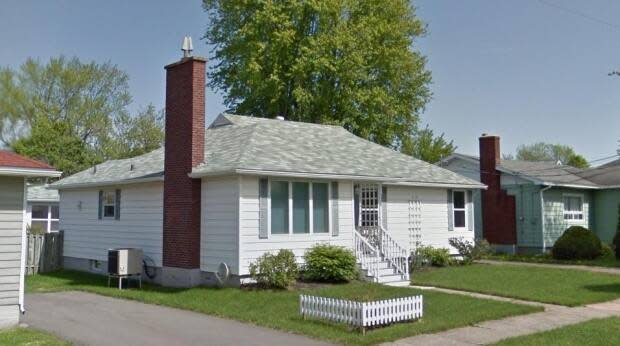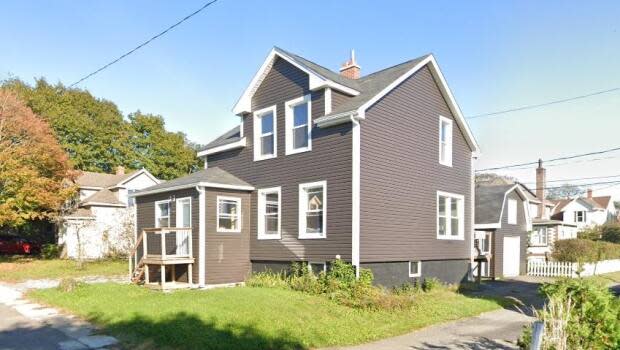What is a $250,000 home in N.B. worth? It depends where you live.

Records show 29 homes that sold in Saint John over the last two years for $250,000 are being assessed for taxes for 2023 by Service New Brunswick to be worth an average of just $211,200.
The amount is about $29,000 less than the average assessment on homes in Moncton that also sold for $250,000 during the same period and that does not sit well with Saint John Mayor Donna Reardon.
"I feel like it's Groundhog Day for me, or like I'm a hamster on a wheel," said Reardon in an interview last week.
"This problem just keeps resurfacing and I feel like I can't fix it or can't find out why."
Reardon, who has already expressed frustration with Service New Brunswick's commercial and industrial assessments in her city in the wake of below average growth numbers in its tax base, is not happy to hear of potential issues with residential assessments as well.

According to information released by the province in September, Saint John's tax base will grow by 8.76 per cent for 2023, ranking it 39th among New Brunswick municipalities. It's below the provincial average of 10.73 per cent and well behind growth in Moncton of 14.78 per cent.
Municipal tax bases in New Brunswick are calculated entirely from property assessments done by Service New Brunswick.
Growth in Saint John has been slowed partly by the agency issuing assessment increases of three per cent and less on $1.15 billion worth of property in the city for 2023, including on a significant amount of its most important commercial and industrial properties.
But, in addition, there are signs the agency has been assessing residential properties in Saint John more cheaply than it does in Moncton, including properties in the two cities that sell for identical amounts.
In one instance, assessment notices sent out by the province in late September show at least 92 houses, townhouses, condominiums, duplexes, garden homes and triplexes were purchased in the two cities in 2021 and 2022 for exactly $250,000. That includes 41 purchased in Saint John and 51 in Moncton.
Twenty-five of the properties are still waiting for a 2023 valuation, but among the 67 issued notices by Service New Brunswick so far, including 29 in Saint John and 38 in Moncton, the average assessment issued on homes purchased for $250,000 in Moncton is running just below $240,000.

That's about $29,000 higher than average Saint John assessments of $211,200.
But its not just an issue with homes at that specific price.
Lower average 2023 assessments in Saint John than Moncton also show up in homes bought in both cities for $150,000, $200,000 and $300,000, according to publicly accessible Service New Brunswick data.
In total there are just over 2,500 homes sold in Saint John and Moncton over the last two years for between $150,000 and $300,000 and which have had an assessment issued for 2023.
On average, records show the assessments on the Saint John properties to be running about $11,600 below their selling price and in Moncton about $4,500 above.
In that Moncton group is Rob Caverly.

He paid $235,000 for his house on Fifth Street last November in a bidding war with other buyers, even though the house was assessed by Service New Brunswick at the time to be worth $123,400.
Nevertheless he has received a 2023 assessment notice for $245,500, $10,500 more than he paid and nearly double the property's 2021 valuation.
"I'm not a happy camper as far as the taxes go here," said Caverly.
"It's absurd the amount of taxes we're paying for this place now."
That feeling is not uncommon in Moncton, but according to Service New Brunswick, actual sales prices, like Caverly paid, are the proper foundation upon which residential valuations in a "market-based" assessment system are based.
"Your property's real property assessment value reflects its market value," the agency explains on its website.
"Assessments are based on market value because market value is transparent. Real estate prices are published in the newspaper every day and sale prices are now public knowledge, easy to understand and a fair and realistic measure of a property's value."
That makes it difficult to understand why that connection between sales prices and assessments is not more apparent in Saint John.

On Summer Street on the city's west side, six houses have sold in the last two years for an average price of $202,000 each. However, according to their 2023 valuation notices, assessments on the six will average $51,000 below their sale prices next year at $150,467.
One of the houses on Summer Street sold last year for $230,000, within $5,000 of what Caverly paid in Moncton. But next year its assessment will be $149,600, almost $96,000 below Caverly's.
Service New Brunswick did not provide anyone for an interview to explain differences like that in residential assessments between the two cities.
In an email, Service New Brunswick's director of communications Jennifer Vienneau noted population growth has been stronger in the Moncton area but didn't directly address why homes that sell for identical prices in the two communities would be valued for less on average in Saint John.
"One of the major factors in determining the Real and True Market Value of a property is location and can vary from community to community and neighbourhood to neighbourhood," wrote Vienneau.
"The Beausejour area, including Moncton/Dieppe, has surpassed all other regions in New Brunswick for increases in the assessment values. This is due to population migration to this area resulting in economic growth. The situation in Saint John is different than the Moncton area."
Reardon said she does not understand why residential assessment values in Saint John do not mirror residential sale prices as closely as they do in Moncton but she fears undervaluing property in Saint John is a problem that runs right through Service New Brunswick's work in the city.
"Absolutely," said Reardon. "That reflects all the way down from residential through commercial through business through industry, through heavy industry. Everything looks repressed in its value when you look at everything across the board."


